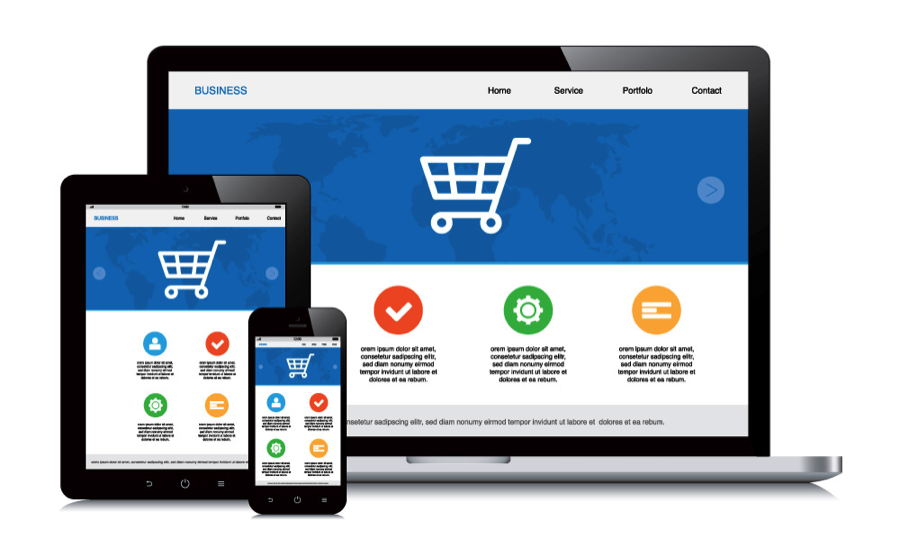If you’re anything like the average person, you have experienced frustration in the form of procrastination, stress and everyday distractions. It’s completely normal to fall into these pits of aggravation.
Have you ever wondered how the world’s most successful people handle these everyday nuisances? Surely their frustration is equal, if not much, much greater than those who have fewer responsibilities. So what are the habits they keep in order to stay sane in a world of chaos? This is the topic of this blog post.
A recent research project examined some of the top CEOs, innovators and entrepreneurs in an effort to discover:
How do they avoid distractions and stay focused?
How do they maintain a high degree of energy throughout the day without the assistance of caffeine?
How do they keep from procrastinating in the face of a particularly challenging task?
The following are habits that are commonly practiced by hyper-productive individuals. How do we know they are effective? Well, as the old adage goes … the proof is in the pudding!
Habit 1: Take a Break from Time to Time Throughout the Day

People that are highly productive understand the importance of not only managing their time, but their energy as well. By taking short breaks throughout the day, it allows their minds to reset and reenergize.
One of the effective methods of managing your energy is to practice the Pomodoro Technique. It’s basically a program in which you work in 25-minute intervals, then taking a five-minute break.
Habit 2: They Look to the Future and Work Back
Successful people consider the end of their lives and what they want their life circumstances to be when that day comes. They ponder on how they will be remembered by their posterity, and what legacy they want to leave. They set long-term goals and stay motivated to eventually achieve them, working backward from the eventual goal to today. This is not unlike a chess game, where you know where you want to end up, and must plan your moves accordingly.
By setting long-term goals, we’re driven by an incentive, a purpose, which inspires us to work extra hard to get there.
Habit 3: They Plan their Day the Night Before
Highly successful people create a to-do list the night before, focusing on their most important tasks (MITs). They go on to break down those tasks into smaller, easier-accomplished subtasks. Each hour of the day is planned so that they don’t tend to become distracted and lose track of the original tasks at hand. This forces you to keep a tighter schedule, yet stay realistic about what you can accomplish.
Habit 4: They Keep Internal Distractions from Distracting

Highly productive people learn to deal with distractions, which come in two forms: first are the distractions from other people, and then there are the distractions from ourselves. Sometimes people will think of something while they are working, then they check it out on Facebook, Twitter or any other website. This tends to lead us to a “click frenzy” where we can lose complete focus on our task at hand.
Many of these distractions can be eliminated by shutting down the Wi-Fi while working on your MITs, or keeping away from time draining apps or social media sites. Another method of eliminating distraction is to unplug your laptop and “race the battery.” This is where you attempt to complete your project before your battery drains. This keeps one focused and helps expedite the process.
Habit 5: They Maintain a To-Do List for Distractions
It is not easy to get out of bed and go to work if you don’t know what the day holds for you. By creating a to-do list, you can check off the items as you do throughout your day, and the self-distractions become minimal. This method helps to keep you on track, so that at the end of the day your list is completed.
As far as distractions from others, it’s a simple matter of keeping a separate to-do list. This list should be used exclusively for items that others have approached you with during the day. For instance, if a coworker needs you to look something over, just let them know that you will get to it when your other assignments are completed. People, especially if they are busy, will understand that you cannot drop what you’re doing and address their needs. It is, however, important to be sure to eventually address the listed items so that your integrity remains intact. Make sure to prioritize the items on this list so that the more urgent items are addressed first.
Habit 6: They Utilize Email Tools and Systems to Manage the Inbox
Most people who are successful in business completely understand what seems to be an uphill battle: keeping your inbox empty. For most, this is only a dream, as it seems that the quicker you try to empty out your inbox, the more items you find that need to be attended to. This means that your inbox, one of your most crucial tools, can also be your biggest distraction.
In order to keep track of your emails and address the important ones, you must check your mail regularly throughout the day. If there are hundreds of messages and you just can’t keep up, there are email productivity tools you can download that will filter out unimportant messages, allow you to see when someone opens an email that you sent to them, and there’s even a tool for mass unsubscribing from unwanted newsletters.
Remember that if you allow your inbox to become too populated, then it becomes a major project to go through and clear it out, which is a huge time waster. You are better off keeping the email down to the bare necessities so that you don’t fall into the overpopulated inbox trap.
Habit 7: They Eat Healthy and Exercise Daily

Research has proven time and time again that exercise makes our brains more attentive, alert and better able to focus. It’s considered to be “fuel for the brain.” It doesn’t have to be a rigorous program. If someone isn’t used to running, for example, they can start by running one minute a day, and gradually increasing it until they have built a steady routine.
Speaking of fuel, another important factor in keeping your brain alert is to eat properly. When you load up with heavy carbs during the day, your brain wants to do nothing but shut down. When healthy, veggie-rich foods are consumed, your brain cloud is removed and you can think more clearly.
Habit 8: They Gear Their Computer Skills for Speed
Highly productive people don’t have time to wait around on a slow-moving computer. They take the steps to become lightning fast on their computers. Here are a few methods they use to get there:
They use tools to find apps quickly
They increase their typing speed
They learn to utilize the keyboard shortcuts
They increase the speed of their mouse
Some of these items may seem trivial, but every little bit helps when you are in a constant state of rush.
Habit 9: They Learn from their Failures

No matter how successful a person is, one thing is certain; they have failed on several occasions. That, however, isn’t a bad thing, as long as they learned something from each experience.
According to PhD psychologist, Carol Sweck, we have two possible mindsets:
- A Fixed Mindset
- A Growth Mindset
A fixed mindset believes that our qualities, our skills and our character are granted, not learned. People with this mindset decline activities or assignments, stating something like, “Oh, I’m all left feet when it comes to dancing,” and they refuse to dance.
A Growth mindset is basically the opposite. If there is a pending challenge, one with a growth mindset is willing to do whatever it takes to develop a skill and achieve the task. In other words, these people look at failures or weaknesses as opportunities to improve.
Without developing this growth mindset, one cannot succeed; rather he or she will give up before they even get started.
Habit 10: They Delegate the Minutia
Successful people concentrate on being productive in the field in which they specialize. If there are tasks to be completed that don’t require a special ability, they hire someone to do them. They don’t consider that it’s too expensive and that they should do it themselves to save money. To the contrary, they know how valuable their time is, and they know that they can actually save money by hiring the minutia (such as laundry, housework, filing, etc.) to be done for them.
As an example, if you make $50 per hour, and you have 5 hours of menial chores to be done, you could spend five hours doing it and it would cost you $250 worth of your time. However, if you hired someone to do the chores for $15 per hour, you would spend $75, and your time would be freed up to make the $250 doing your job. In essence, you saved $175 by NOT doing it yourself.

Habit 11: They Take Time to Meditate
Some of the most successful and respected people in business take time out of their day to meditate. Using fMRI scans, scientists can actually visualize measurable differences in our brains before and after meditation. It actually slows down our brain activity enough to allow us to concentrate more thoroughly on our projects. The frontal lobe is calmed, and that is where creativity and logic comes from.
Those who practice meditation, swear by it. Those who do not should perhaps give it a try.
Habit 12: They Know How to Say “No” Politely
It is built into most of our brains to say “yes” when someone asks us for help. There is actually a section in our brains called the Right Supramarginal Gyrus, which triggers empathy. Nevertheless, there are times when we must decline a request for help in order to finish our own tasks. This doesn’t mean that you must be ruthless and narcissistic, but you can learn to delicately say “no,” or let them know that you can help them at another time. Your agenda mustn’t be sacrificed in the name of likeability.
Habit 13: They are Grateful for their Blessings

Yale, Harvard, UC-Berkeley and Columbia Universities conducted advanced studies in the field of gratitude and its effect on productivity. Every study concluded that being grateful increases health, alertness, happiness and even better sleep. Simply put, gratitude increases productivity.
In addition, not only does gratitude help individuals become more productive, it becomes an incentive for those around you to work harder, knowing that you will express appreciation for their actions.
In Summary:
In summary, this study concluded that successful people:
- Avoid distractions
- Keep a separate to-do list
- Optimize their email
- Build healthy habits into their daily routine
- Become very fast on the computer
- Maintain a “Growth Mindset”
- Outsource minute tasks
- Meditate
- Say no (nicely)
- Count their blessings



